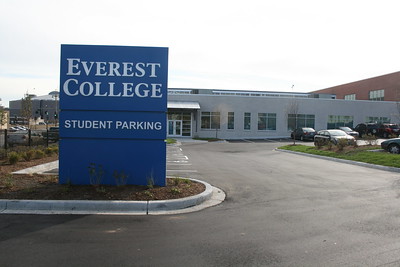I was reading an article on the WGBH (Boston) website today about community college enrollment there. In Massachusetts, fall enrollment at the state’s community colleges is down 12%. That’s a larger drop than at the four-year universities, where enrollment has declined by 7%.
Typically, in a recession, community college enrollment rises. Workers who have lost their jobs enroll at a community college to retrain. (In fact, there’s a direct, predictable relationship between mass layoffs in an area and community college enrollment growth. High school graduates don’t fare well in a poor economy,so they attend classes when they can’t find work. Students whose household income may have changed unexpectedly take classes that transfer to a four-year university.
So, it’s surprising to see community college fall headcounts dropping – sometimes by double digits over Fall 2019. Some observers attribute the decline to established students who are withdrawing from their programs in response to the pandemic.
Community college students tend to be the poorest of the post-secondary crowd. They often work in the service industry and many of them have children. Combining job loss, extreme financial insecurity, childcare and/or managing their children’s online learning is too much. To manage all of these demands, community college students withdraw from their own classes.
Nature abhors a vacuum, even in community college enrollment
A Philadelphia-area sociologist says that one other factor is setting the stage for another unwelcome change. Sara Goldrick-Rab, a professor at Temple University, says community colleges don’t support their students well. Support during a pandemic could include issuing laptops, making Wi-Fi available, providing childcare and offering food support. As Aristotle observed, “Nature abhors a vacuum.” The consequence of NOT providing this kind of support is that online, for-profit colleges and universities will find a way to do just that.
Rolling computers, network access and other living expenses into the cost of a degree – without charging the student up-front – makes it very easy for students to move from public institutions to private ones. Students make decisions in the moment. “What meets my needs right now?” They may not stop to think about the long-term impact of borrowing huge sums of money to attend classes. They may not consider the fact that their credits may not transfer anywhere, or that they may not be qualified to work after graduation. Or that they will owe tens of thousands of dollars.
Which is why we need our community college administrators to come up with creative, meaningful ways to support students as they try to navigate the pandemic. Keeping them in WCC’s classrooms keeps them out of private, for-profit schools. It enables them to earn meaningful, transferable college credits without taking on enormous, inescapable student loan debts.
Where are we going to lose them to?
Sadly, as impoverished and unemployed or underemployed county residents wait out COVID-19, WCC administrators are dreaming up ways to generate cash for the College that eliminate the need for students.
WCC was voted into existence to educate students. When administrators pursue activities that generate revenue for the College (but do not support its students), WCC fails the entire community. We do not need a community college whose top priority is self-preservation. And we need College administrators who devote their full attention to the mission. We don’t need Trustees who ask, “Where are we going to lose them to?”
If you have to ask, WCC is going to lose them to private, for-profit diploma mills.
It is all-hands-on-deck. We need WCC’s large, expensive administration and its disengaged Board of Trustees to start acting like it. If they continue to pursue alternate revenue streams, then we will consign our students to the private, for-profit schools who are looking for them, laptops (and private student loans) in hand.
Photo Credit: Jeramey Jannene , via Flickr






































